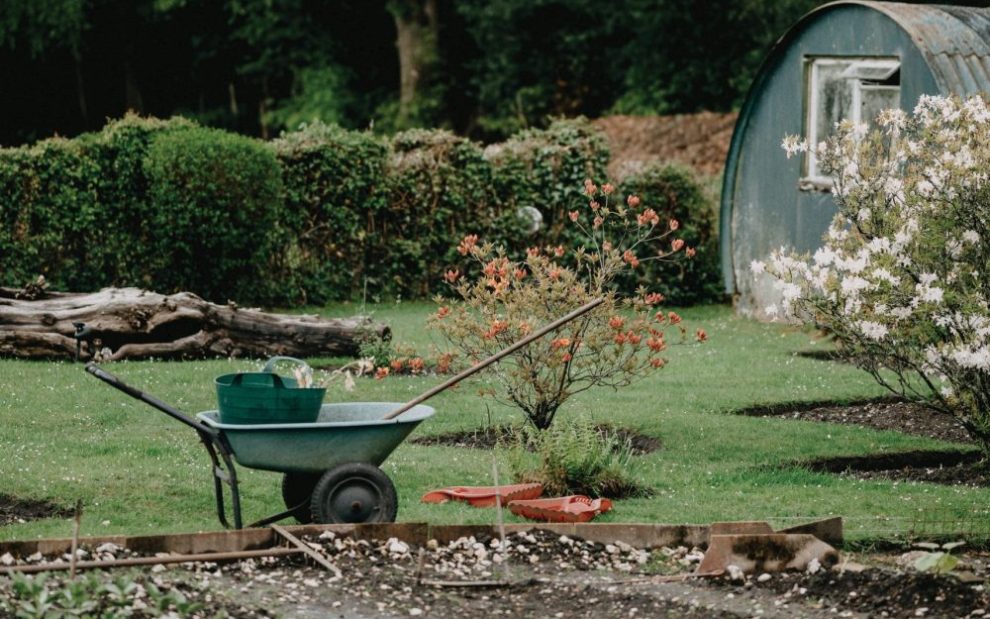Work, for the night is coming,
When man works no more.
—Gospel song by Annie L. Coghill (1854)
A year before Dad died, I asked him, “Have you had a happy life?”
“Very happy,” he answered. “I’ve accomplished more than I ever imagined I would.”
His answer, correlating happiness with achievement, surprised me, though it shouldn’t have. His theology may have been grounded in grace, but his life was bound by service and work.
Rarely short on counsel, my dad had three guidelines for my siblings and me as we made career choices. We should look for work that provided (a) opportunity to improve ourselves and our talents, (b) opportunity to serve others, and (c) an adequate livelihood.
Dad was generally pleased with our choices—teaching, nursing, and me in publishing.
I’ve asked my siblings whether they’ve internalized more positive traits from Dad or from Mom—and what those traits are. A sister’s response summarized the household dynamics: “Dad taught me how to work, though Mom wasn’t exactly a shirker.”
One spring, three of my sisters carpooled 300 miles to visit me. Within 10 minutes of their arrival, one asked, “Where’s your shovel? We want to plant your geraniums.” Next morning before breakfast, another: “How can I help?” Yet another: “Where’s that dress you wanted shortened?”
I laughed. “Listen to yourselves. Workaholics.” I quickly regretted this outburst. I didn’t want to discourage their help. Besides, I knew I was one of them, all of us crafted by the same master.
Growing up, we knew little of lazy summer days. At breakfast or lunch, Dad gave out special assignments. Lawn to mow, row upon long row. Dog to brush. Car to wash. Garden to weed. Strawberries to jam. Beans to snap. Pliers to fetch.
In Dad’s scheme, our work had multiple purposes. There was the domestic maintenance of a large family before convenience came prepackaged—not that Dad and Mom’s make-it-from-scratch habits changed much in their later years.
There were the bills to be paid—not current car repairs or gym shoes, covered by Dad’s salary, but future college costs. Saturday night, Dad pulled out his wallet and doled out dollars, a weekly allowance for housework not to be spent but saved against that impending day of registration. And Dad devised ways for us to earn extra money. I cleaned house for a family friend. One brother had a paper route. Dad bought another brother a hundred pullets so he could sell eggs. Work, for the college bills are coming.
Dad’s household work ethic also satisfied his parental need to train up us children in the way he thought we should go. By example and instruction he taught us how to do something correctly, which is to say by his method: wax a car with circular motion, shovel a walk, put on storm windows.
Mother had her own classroom for girls; there was a correct way to fold a sheet, make a bed, roll a pie. As an adult, I was helping my brother change guest-bed sheets. When he put the top sheet pretty-side-out, I quipped, “Where’d you learn how to make a bed? Clearly not from Mom.”
Dad often set us up on a project and then came back to explain how to improve our results or increase our efficiency. On some projects, he worked alongside us, or, rather, we served as assistants: wiping Big Boy tomatoes that he strategically lined into peck baskets to sell roadside; sitting on milk crates in the garage setting up honey frames. He wanted us with him, to help and to hold the hammer.
I don’t mean to imply that I never played—dolls and bicycles with neighborhood friends, badminton with siblings, or paper dolls alone. But in my father’s house, play was always secondary to work. From observation, I gathered that playful amusement was one of the childish things that an adult as mature as my dad or mom or the apostle Paul “put away.”
I don’t remember Mother playing with me as a kid, except when play had a higher purpose: hangman in church to keep me quiet, Scrabble set up on the coffee table to increase my word power, jigsaw puzzles that would eventually hone my editorial skills. I found playful moments with Mom, collecting and sorting dirty laundry and hanging it clean or rolling walnut-sized balls of cookie dough in crushed corn flakes.
Trying to be intentional about good fathering, Dad occasionally initiated an after-dinner board game—Sorry, Thimk, or Rack-O, nothing as prolonged as Monopoly. If Dad was in on the game, Mother held back, suddenly eager to catch up on the newspapers, maybe because halfway through the game he grew impatient with anyone caring too much about strategy. After all, it was just a game. “Whose turn is it? We don’t have all day” to play.
Six weeks before my dad died, I visited him. Before I left, we knelt together, planting petunias and marigolds in hanging baskets for his porch and flower boxes for his church. “More water,” he instructed. Two weeks later, those plants were his desperate reason for staying on his property. By phone, I reiterated the plan and schedule for his unexpectedly imminent move to my sister’s house. He was emphatic. “I don’t know why people keep talking about my going to Rachel’s. I’m not. I’ve got work here to do. I’ve got flowers to water.” A job to keep him tethered to Earth and home.
To ease his move, Rachel transported his hanging baskets to her front porch and put him in charge of her plants. A month later, as he left for a weekend in his own house, he gave back the task, father to daughter, as if she might forget: “While I’m away, you’ll have to tend these flowers. They need water every day.”
I’m not sure the plants survived the summer. He didn’t. His health took a turn, and he went up to his home in Gloryland. I trust he’s happy there. I say this because he was afraid that he’d be a little bored in the hereafter, “when man works no more.”
Since Dad’s death, I’ve lost a little of my drive. I work a bit less, indulge myself a smidgen more. Friends smile at this change.
I’ve found and read some of Dad’s golden-year—retirement—jottings. So far, I’ve found only one expressed regret. After quoting one of us kids, “ ‘My dad did not play with me; he worked with me,’ ” he typed a new line.
“I think that I should have played more.”
This article also appears in the March 2024 issue of U.S. Catholic (Vol. 89, No. 3, pages 21-22). Click here to subscribe to the magazine.
Image: Unsplash/Annie Spratt















Add comment